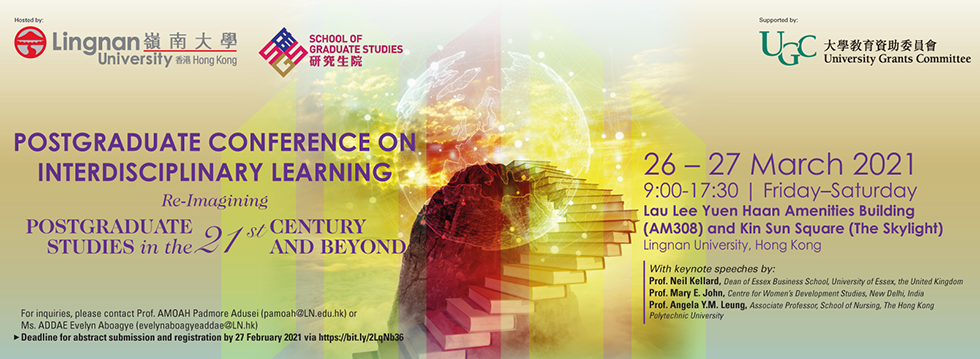
Development of Chinese paper cutting as an expressive art intervention targeting psychological health of University students in Hong Kong: an intervention protocol
Start Date
27-3-2021 9:30 AM
End Date
27-3-2021 9:45 AM
Description
Mental health has become one of the noteworthy issues in the contemporary society, with particular attention paid to university students for their heightened prevalence rate of mental health problems. In Chinese society, individuals are reluctant to seek talk-based psychotherapeutic services because of the ramification of social stigmatisation (i.e., embodiment of one’s own failure) which impedes their direct verbal expression of their presenting issues. While multifarious dynamic, action-based therapeutic approaches can be found in Hong Kong, most of these modalities originate from Western cultures and rarely do they address the indigenous Chinese themes experienced by most local Chinese people exclusively. In view of the gap in the existing action-based therapeutic available in Hong Kong, the present protocol study explicates a novel therapeutic modality which integrates paper cutting, a Chinese traditional folk art, with art-based therapeutic techniques. Methods: university students aged between 18-25 are randomly assigned to either 2-week treatment group or waitlist group, respectively. In the treatment, subjects attend workshops on Chinese paper cutting plus daily take-home experiential exercises. All subjects complete the questionnaires measuring their self-esteem, self-compassion, mindfulness, symptoms of mental health and, quality of life at the baseline and 2-week after. Analysis: A multivariate analysis of covariance (MANCOVA) is conducted to examine if subjects in treatment group, compared with the counterparts, would significantly improve their self-esteem and mental health throughout this 2-week period. Implication: The present intervention protocol may serve as a prospective therapeutic approach in Hong Kong, for its incorporation of traditional Chinese philosophies embedded in local Chinese individuals.
Recommended Citation
To, P. Y. L., & Chan, V. Y. Y. (2021, March). Development of Chinese paper cutting as an expressive art intervention targeting psychological health of University students in Hong Kong: an intervention protocol. Presented at the Postgraduate Conference on Interdisciplinary Learning: Re-Imagining Postgraduate Studies in the 21st Century and Beyond. Lingnan University, Hong Kong.
Development of Chinese paper cutting as an expressive art intervention targeting psychological health of University students in Hong Kong: an intervention protocol
Mental health has become one of the noteworthy issues in the contemporary society, with particular attention paid to university students for their heightened prevalence rate of mental health problems. In Chinese society, individuals are reluctant to seek talk-based psychotherapeutic services because of the ramification of social stigmatisation (i.e., embodiment of one’s own failure) which impedes their direct verbal expression of their presenting issues. While multifarious dynamic, action-based therapeutic approaches can be found in Hong Kong, most of these modalities originate from Western cultures and rarely do they address the indigenous Chinese themes experienced by most local Chinese people exclusively. In view of the gap in the existing action-based therapeutic available in Hong Kong, the present protocol study explicates a novel therapeutic modality which integrates paper cutting, a Chinese traditional folk art, with art-based therapeutic techniques. Methods: university students aged between 18-25 are randomly assigned to either 2-week treatment group or waitlist group, respectively. In the treatment, subjects attend workshops on Chinese paper cutting plus daily take-home experiential exercises. All subjects complete the questionnaires measuring their self-esteem, self-compassion, mindfulness, symptoms of mental health and, quality of life at the baseline and 2-week after. Analysis: A multivariate analysis of covariance (MANCOVA) is conducted to examine if subjects in treatment group, compared with the counterparts, would significantly improve their self-esteem and mental health throughout this 2-week period. Implication: The present intervention protocol may serve as a prospective therapeutic approach in Hong Kong, for its incorporation of traditional Chinese philosophies embedded in local Chinese individuals.

